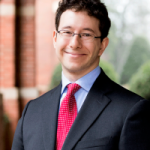Earlier today, a statement was issued by more than 60 Catholic theologians, priests, Catholic sisters, justice advocates and retired officials from the U.S. Conference of Catholic Bishops to Catholic lawmakers concerning public safety and the need for “reasonable measures to regulate the sale and use of lethal weapons.” The Vatican’s chief spokesperson Rev. Federico Lombardi recently expressed his approval of the direction the Obama administration is taking on this issue. Bishop Stephen Blaire also stated, “The bishops hope that the steps taken by the administration will help to build a culture of life.” Of course, while addressing violence in U.S. society entails many other efforts (by churches, families, community groups, as well as government), requiring better background checks when purchasing firearms and restricting access to things such as high capacity magazines are a reasonable first step. As a former law enforcement officer, I worry about heavily armed citizens who do not have the constant training (and, hopefully, the habits of justice, prudence, courage, and moderation that come from such repeated exercises) needed to discern when to shoot or don’t shoot in split-second situations on the street (or in the movie theaters or schools), and I also worry for police officers who face heavily armed criminals. As a theologian, moreover, I believe there are serious theological issues that need to be considered carefully in connection with our current gun culture, such as the sort raised by Jim Wallis at Sojourners or by Garry Wills at the New York Review of Books. Thus I signed the aforementioned statement.
About The Author
Related Posts
14 Comments
Leave a reply Cancel reply
You must be logged in to post a comment.
Contributors
-

Alessandro Rovati
1 Post -

Andrew Kim
9 Posts -

Barrett Turner
0 Posts -

Beth Haile
173 Posts -

Book Reviews
10 Posts -
Catherine Moon
0 Posts -

Charles Camosy
141 Posts -

Christopher Vogt
38 Posts -

Conor Kelly
48 Posts -

Dana Dillon
52 Posts -

David Cloutier
215 Posts -

Emily Reimer-Barry
161 Posts -

Holly Taylor Coolman
2 Posts -

Jana Bennett
161 Posts -

Jason King
142 Posts -
Jennifer Beste
0 Posts -

Jessica Wrobleski
7 Posts -

John Berkman
15 Posts -
Julie Rubio
38 Posts -

Kari-Shane Davis Zimmerman
2 Posts -

Kathryn Getek Soltis
36 Posts -

Kelly Johnson
17 Posts -

Lorraine Cuddeback-Gedeon
11 Posts -

Luis Vera
3 Posts -

Maria Morrow
41 Posts -

Matthew Shadle
60 Posts -

Meghan Clark
111 Posts -

Miguel J Romero
11 Posts -

New Wine New Wineskins
22 Posts -
Nichole Flores
6 Posts -

Patrick Clark
124 Posts -

Ramon Luzarraga
14 Posts -
Shawnee
0 Posts -
superchief1
1 Post -
Thomas Bushlack
69 Posts -

Tobias Winright
59 Posts


I’m afraid that it shouldn’t be too much longer before conservatives on Catholic blogs are posting that the statement you signed is not an authoritative statement, and lackingn the weight of the Magisterium can be safely ignored…
Chesire11: That may be so, but they’d be incorrect. Regardless, the arguments in favor of better gun legislation are not ultimately based on authority (even though as a former law enforcement officer I like to quote Cartman from Southpark when he used to pretend to be a cop, “Respect my autoritay’!”). Still, even if authority plays a role, the “conservatives on Catholic blogs” to whom you refer appear to operate with a positivist or reductionist understanding of “the Magisterium.” Plus there are varying levels of “authority” among the varying kinds of statements from even the Pope. Still, even if something is not, for example, a papal encyclical, and thus does not have that level of authority, it still has some degree of authority to be considered carefully and prayerfully rather than ignored, belittled, or rejected outright.
I think these responses need to be a bit more precise. If Chesire11 is claiming that the sources you referenced represent doctrinal statements of the Magisterium then he is incorrect. As you point out, documents such as these oblige us to consider them carefully, but they do not oblige our assent precisely because they are not doctrinal.
If I don’t know anything about a topic I may be well served by simply accepting the opinions of clergy on the matter, but if I am informed on the subject then what matters (to me) is not the weight of the office but the weight of the argument. In the case of gun control the proposals made and the justifications for them are in general unconvincing.
If the Newtown massacre is the justification for increased restrictions then someone ought to be able to show how such restrictions might have prevented that crime. In fact, nothing that has been proposed would have had the slightest effect in changing the way that incident played out, which makes this all seem like the implementation of Rahm Emanual theory that one should never let a tragedy go to waste.
Ender: I agree with you on your first paragraph and also the first sentence of your second paragraph. I disagree with your conclusion about the arguments for gun control proposals. I find them convincing, and I am not simply a theologian; nor am I clergy. I did raise a theological and philosophical (virtue theory) point above, which I haven’t seen anyone raise yet, which is actually also rooted in some of the criminological/law enforcement ethics literature about character and cops. I do agree with you, though, that it is an oversimplification or overstatement to say that such legislation would prevent such massacres. I would instead say, reduce the likelihood of such massacres.
Tobias: I agree with you, and was bemoaning the fact that there is a tendency among many to fit their faith to their politics, and dismiss anything short of an infallible declaration to be nothing more than personal opinion that can be safely disregarded.
As you point out, there are degrees of authority; an infallible declaration, or Church tradition is more authoritative than an encyclical, which is more authoritative (if I understand it correctly!) than a bull; the opinion of a bishop, or a theologian is more authoritative than my ramblings on a blog comment thread. Unfortunately, when authority expresses a inconvenient truth, there is a temptation to dismiss that authority in favor of the infallible personal opinion.
A person may dissent from non-doctrinal teachings, but he is not absolved from careful consideration and weighing the authority with which the statement is made.
Tobias: I consider it entirely appropriate for us to disagree about which actions might reduce the likelihood of gun violence. My sole point here is not to push for (or against) a specific proposal but simply to argue that I am as justified in disagreeing with your suggestions as I am in disagreeing with those the bishops have made. As Bishop Blaire is quoted as saying: “The Bishops hope that the steps taken …” will help. I certainly hope so too but I have a different opinion as to the probability of things turning out that way. What I object to is the impression the bishops create when they support specific actions that Catholics have a moral responsibility to support those actions as well.
It is legitimate for someone to claim that his solutions would work better than mine but it is not legitimate for him to claim, assuming a bishop has endorsed his proposal, that his solutions are more moral than mine.
Thanks, Cheshire11 and Ender for these follow up comments. Good stuff, I think.
Hello – I am note to this forum. I just returned from the march for life and was frustrated to read headlines in some of the papers equating gun control and the pro-life movement. Yes they both advocate a culture of life and for many well versed Catholic’s it would be sensible to see the connections but as one may know, there are maybe 25-30% “well versed” Catholics in the standard Catholic population. I was frustrated because of the timing and seemingly opportunistic aspect of this push. I wonder openly sometimes if our Theologians are fighting on the same battlefields and at the front lines as our lay Catholics are, such as myself. Working with folks who are not Catholic, luke warm Catholic, or not practicing at all? If they get the same questions we get when we drive around with our co-workers who know we are Catholic… “How can Catholic’s be pro-choice?” How come Catholics support pro-choice candidates?” and more. I am not saying this is not an issue which we should or should not support, more gun control that is. Personally, I find it difficult to conceive passing more laws which are not enforced. I also find it more a states issues then a federal issue. I do not own a gun, in fact I own a taser so that if we need to protect ourselves we can do so in a way that is not “final”. My frustration is with the seemingly ill advised timing of such a push. Why surrounding the March, why around the anniversary of Roe v Wade, other then the fact that it would garner support, be assimilated with the pro-life movement, opportunistically take advantage of the media coverage. Media coverage which one could easily see that the more progressive media would pit the issues against each other, once again drawing more ill toward those standing up for life. I would be curious how many of the signers of this note marched on Friday? How many have signed such sorts of documents advocating the protection of Marriage as sanctified only between a man and a women, how many have been writing and signing similar statements to fight against the HHS mandate? The timing of the statement undermines the pro-life movement as it relates to abortion because murder is always intrinsically wrong. Abortion is intrinsically wrong, however owning a firearm is not. A gun is an inanimate object. Could it be used for good? Yes. For evil? Yes. Could abortion be used for good, never. Because it is not a noun, it is a verb and a gun is a noun. While I am not at odds with the statement, or the stance. I am at odds with the timing of it’s delivery and the enablement of the less educated media to do exactly what they did with it. It is hard for me to believe that very smart folks like the signers of this statement would not foresee such use by the media. It disappoints me when I see our various theological leaders release something timed in such a way which could undermine some’s faith, cause questions amongst less educated or practicing Catholics and most of all give fuel to a media that is successfully dividing those in our pews pitting them against each other. I do believe the timing of this statement lacked prudence in the spiritual sense and political tact, or maybe I am mistaken and that was that point; to disrupt the pro-life movement during the largest week of their year, in order to advance a more gray and less intrinsic point.
Welcome, MSPOJER, and thank you for your comment. On the point about timing, there is actually a Hearing before the Senate Committee on the Judiciary On “What Should America Do About Gun Violence?” this Wednesday, January 30, 2013. This is an issue, therefore, that is very timely, and the statement was primarily directed to representatives in Congress as they are currently devoting their attention to the matter. It happened to coincide with the March for Life, which has primarily been about abortion but has also over the years included attention to other life topics, such as euthanasia and capital punishment. Interestingly, the victims of gun violence, as in the Sandy Hook massacre, are innocent, too, and I do not know of anyone in Congress on either side of the aisle who would dispute that–unlike how debate exists about the status of the unborn, whether they are human persons or not. So perhaps on the question of addressing gun violence, there is at least more common ground on the fundamental starting point, which is pro-life, that should be highlighted. Of course, yes, there is indeed the question of how best to address this problem of gun violence, and legislation is only one part, in my view, of the equation. However, a number of people have noted that the same applies to the question of how best to address the problem of abortion. So thanks for adding your 2 cents here, because you raise some good questions and points.
Tobias – I don’t think there is any debate to whether or not the victims of Sandy Hook and others like Chardon (the neighboring community to my children’s Catholic School) are innocent or not, they are. They are victims of evil actions, possibly and probably influenced by mental state but evil nonetheless. Legislation will not stop evil. As a society we do not condone these senseless acts and they should be stopped. So why do we condone abortion?
I am not sure if it is debatable either as to when life begins, I hope on a blog concerning Catholic Moral Theology you are not implying it is debatable? I presume you are indicating that politically it is debatable, that it is debatable on the legislative floor. Subsequently, gun control is a much looser and less definable debate, no? When life begins is of course not debatable, not if you are a practicing and obedient Catholic. So I suppose that is the larger issue. Are Catholic politicians speaking out on Catholic principles? I guess that is why I posed the question, are the signers of this document putting equal pressure on Nancy Pelosi, Tim Ryan and other staunchly pro-choice politicians to push them to reform abortion. Have you and they signed similar documents addressed to those folks regarding the HHS mandate and the redefinition of Marriage? I guess I did not get that answer in the last post. I know the Manhattan Declaration calls for that. Are you and the other signers of this document signers of that document? I understand the Senate hearings, as well as Vice President Biden (again a Catholic supporting non-Catholic positions on Gay Marriage and Abortion) has released with President Obama their key focuses for Gun control. But again, I am not sure why this document itself was timed for last week and not this Monday? Why during the March? I suppose you addressed that in the commentary of noting past inclusion of other life issues. I am not sure I put gun control as a life issue, since murder with a gun, knife, bat or other violent object is still murder, but murder in the womb is called “reproductive rights” or “abortion” or “emergency contraception”. I don’t think we should add grey area to “life issues”, Abortion, Euthanasia, Embryonic Stem-cell Research, Capital Punishment, Murder, Assisted Suicide, by fueling the media, providing them with ammunition to fracture the debate by combining prudential judgment issues into the mix. There is no debate that we should provide for the poor, feed the hungry, provide healthcare, take in and protect the foreigner, but there is debate on how to best to address those in society. There should be no debate among Catholics however on life issues and unfortunately there is. So I guess I will ask again, have the signers of this document signed similar statements regarding life issues, the HHS Mandate and/or the definition of Marriage to current Catholic politicians who are advocating positions conflicting with Church teaching?
The final question I would ask is what did the Bishop’s statement lack? Why did other teachers in our faith feel the need to add to what the Bishops already spoke for us on Jan. 18th, which reinforced their early commentary on the subject? Maybe I don’t understand why Theologians at times add to what our leaders already say? Look, this is America and you have every right to speak your mind, as do the other signers of this. That is what many people have sacrificed their lives to protect. It was a source of pride to express that ideal to my children during the walk. I suppose what I get frustrated about is when our faith leaders appear divided and in conflict, and or when they are. Adding to the Bishop’s statement when many on the document are not Bishops simply confuses me. As an American, yes go for it, but as a Catholic, it confuses me.
mespojer: My basic point is that because nobody debates whether or not the victims of gun massacres are innocent persons, this is a space where common ground may be found and built on. And I simply noted that there are many people who disagree about the status of embryos and fetuses in US society–the nation has been pretty much split on this question. I did not say that I debated or questioned the status of embryos and fetuses.
It is interesting that we theologians sometimes get criticized for not helping people to understand what the bishops and magisterium teach, and here we are being criticized for doing so. We can’t win, right? Actually, I think it is very important for people to be aware of when theologians and bishops actually agree (too often in the news and pews our relationship is viewed as hostile or adversarial) and celebrate that. If both the bishops and the theologians are in agreement about something, then there may be something there worth thinking about.
Even if I lived somewhere other than the USA, I’d sign statements such as this on important moral issues. I’m grateful the right to speak is respected and protected here, but we Catholics belong to a Church that transcends national borders, and we Catholic theologians, even though we live in the US, try to teach, write, and speak first and foremost as Catholics.
I think the statement is clear about how or why gun violence is a life issue, though it is short and has to be concise (it is a statement, not a textbook on the consistent ethic of life, along the lines that one of the other regular contributors to this blog is working on). Some 30,000 US citizens are the victims of gun violence per year. That is less than the number of abortions performed per year, yes. However, it is still far too many. It is perhaps another symptom of what Pope John Paul II named a “culture of death.” In Evangelium Vitae he identified a number of deadly practices associated with such a culture, and abortion was not the only one. Even if it is the gravest one, it is not the only one. We Catholics are called to do what we can to foster a culture of life and to be peacemakers. This may involve a bit of multitasking.
I’m sorry if several life issues make being pro-life too confusing or complicated for you. One of the purposes of this blog is to help Catholics and others to understand such things better. Other previous posts by myself and my colleagues here deal with many of your questions/comments, including about prudential judgments. I will not reiterate them now, and I invite you to explore and read further those postings.
It seems my last post was deleted? I thought I hit submit? I am not beyond user error, so maybe it was just me. I’ll shorten my response; Tobias am not confused as to what life issues are and what are not. Forming Consciences for Faithful Citizenship, Evangelium Vitae & Humanae Vitae makes clear what are life issues and what are other issues which Catholics should be prayerfully understanding and engaging in. I’ll ask the question I have yet to have answered. Have the signers of this document penned, signed and sent similar communications, publicly to those Catholic’s in politics who are advocating stances contrary to the Church on Abortion, the HHS Mandate and the Redefinition of Marriage, all of which I also see as life issues. If the answer is yes then I have no point of frustration, if the answer is no then I would challenge the validity of selectively leveraging our faith to push some politicians and not others.
MESPOJER: I’m on the road this week, so I do not know about your last post. You had said earlier something about confusion, which is why I mentioned it. As for other documents or statements on other issues, I do not know which theologians have or have not done so. This statement on gun legislation addresses both Democrats and Republicans in Congress. It is not partisan for one side or the other. Also, there appears to be more consensus among theologians on this question, including with how best to address it. That may not be the case, especially concerning the latter part (the how to address these issues best), with each and every other issue.
Thank you Tobias. As I read the reports and the details on this statement they only seemed to report on those Catholic legislative leaders who were republican. That seems to be the media bias filtering in. I was not aware that it was sent to all Catholic legislators. That makes much more sense. I still think that releasing statements outside of the the Magisterium to political leaders is dangerous and leaves the door open for misinterpretation by the secular media which results in positioning Catholic’s against each other (or at least the appearance thereof). Much of my bone picking has to do with my pride however. If you have not noticed i like to be right sometimes more then I like to make a point. My point is better articulated in this shorter post. Regardless of the right or wrong nature of it, I often times have to address these societal misinterpretations with my Catholic and non-Catholic brothers and sisters. Often times they use instances such as the Nuns on the Bus vs. the Bishops which Mrs Bennett articulated in a great way in her post Five Things Catholics Should Learn From the Election Season. I guess that is my area of frustration. As a Theologian how do you address that with your students? I felt that the Nuns on the Bus Tour, while calling out poverty (a good thing to raise awareness on), really showed disunity within our Catholic Walls and for what it is worth a lack of obedience to Church Authority. The Bishops were very clear regarding details surrounding the candidates and their positions on almost all issues. There was no shortage of statements released. I have plenty of friends who are smart Catholic’s who disagree with me but sometimes I wonder openly if their formation of conscience is influenced by elements who are not the teaching authority of the Church, like Nuns on the Bus. This disunited and seeming lack of obedience is what troubles me. I can’t understand why we can’t let the Bishops speak for us in public on these matters (not speaking of your statement on Gun Control – I suppose I am moving the discussion to a boarder topic and not arguing but questioning) and instead handle our concerns related to Catholic positions on things internally?